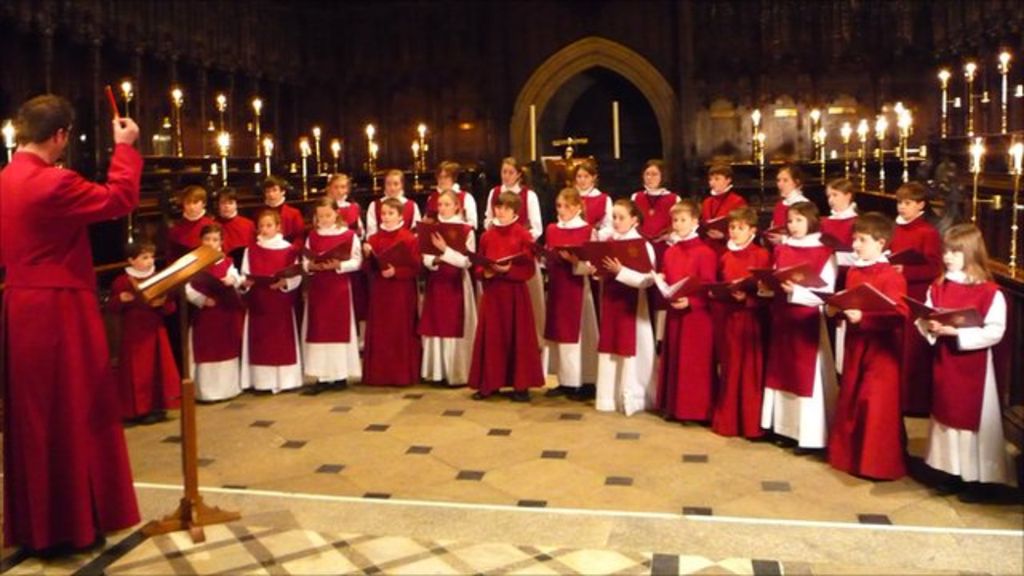There was an item here http://news.bbc.co.uk/today/hi/today...00/9343347.stm on this morning's BBC Radio 4 Today programme about the so-called "shimmery" quality of boys' and girls' voices. Does the secret really lie in the 8000Hz frequency range?
Has science really discovered what causes the 'tingle' factor?
Collapse
X
-
 Magnificat
Magnificat
I wouldn't have thought shimmery was the right word - dictionary definition 'to shine with a tremulous or faint diffuse light' !!?.
The tingle factor to me is singing that sends shivers up and down your spine an entirely different sensation altogether I would have thought.
VCC
Comment
-
 Simon
Simon
Well I think I grasped what shimmery meant in relation to voices. No need to be too literal, VCC!
Comment
-
Oh, come on. Stop posting links (what’s new?) and tell me what YOU think. I’m all ears (well, eyes, I suppose, here).
I came to vocal music only recently so I am only being sentimental but I think boys’ singing voice has that particular poignancy of something that is soon to be lost. But this is of course nothing to do with the quality of the voice itself.
Comment
-
-
I heard the item on 'Today' and also saw the report on BBC News. I'm not really sure what this research proves or what benefits it will have but I thought it an interesting piece of research. Certainly, I have always enjoyed a choir with trebles and do think it has a 'special' sound quality.
It was nice to see the choir at Ripon on the TV report and the interview with Edmund Aldhouse. I heard him play Messaien's La Nativite du Seigneur in the Cathedral just before Christmas and thought it was an electrifying performance. I'm sure Mr Aldhouse is 'one to watch'.
I remember seeing on TV many years ago that an acoustic engineer had done some research on why people find military bands stirring. By paring away the sound frequencies he discovered that there was an underlying low frequency rhythmic pulse that equated with the pulse of the human heartbeat.
Comment
-
-
A few weeks ago I switched on in the middle high-treble register choral singing and tried to guess whether they were boys' or girls' voices. I got it wrong - thought boys but they were girls. Do the musicians and choral conductors here think they could always distinguish accurately, 'blind'?
Comment
-
-
 Simon
Simon
I'd be surprised if anyone said "always" - but if you get to hear them long enough there's a subtle
difference because there's a softness about girls' voices, usually.
Some girl choirs are easy to tell apart - others, especially comprised of younger girls with no vibrato, are more like the treble sound. That said, I don't think I've ever got it wrong the other way round, i.e. mistaken boys for girls.
Comment
-
Yes - and I thought I was able to recognise that quality. I can't now remember who this choir was, but I wonder whether girls' cathedral choirs, as we have at Winchester, are trained to deliver that same timbre as the boys.Originally posted by Simon View Postthere's a subtle difference because there's a softness about girls' voices, usually
Comment
-
-
 Simon
Simon
You can't train a girl to sing with a boy's voice, or vice versa. Each voice has its unique quality - though of course you can get them to use different registers, or adjust any vibrato, or change the tone somewhat.
Yes - and most of the time I bet you can! But that was my earlier point - some girl ensembles, by chance, seem to sound so like boys that one can be mistaken, at least in the short term.Yes - and I thought I was able to recognise that quality.Last edited by Guest; 07-01-11, 16:18.
Comment
-
If it was the choir I saw on the television report of the story, it was Ripon. The soloist was a boy, the choir I thought was mixed but perhaps it was girls only.
EDIT: It was mixed, and I see the link has been posted already.Last edited by Mary Chambers; 07-01-11, 14:55.
Comment
-


Comment